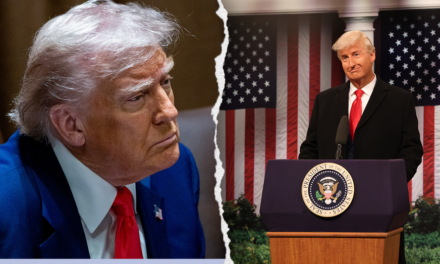In a recent satirical piece for The New York Times, acclaimed comedian Larry David has taken a humorous jab at Bill Maher’s highly publicized meeting with former President Donald Trump. David’s satire draws a clever parallel between this contemporary political engagement and the iconic film “My Dinner with Andre,” reimagining it as “My Dinner with Adolf.” This tongue-in-cheek critique highlights the absurdity of Maher’s choice to engage in dialogue with a figure many views as deeply controversial.
This encounter, which took place amid an already charged political atmosphere, has sparked debate across the media landscape. Maher, known for his sharp wit and satirical commentary on current affairs, has long been a polarizing figure himself. His choice to meet with Trump, whose presidency was marked by division, prompted an outpouring of reactions from supporters and critics alike, leading to a public discourse filled with emotions and opinions.
In his piece, David utilizes his signature comedic style to question Maher’s motivations while simultaneously critiquing the broader context in which this meeting took place. By alluding to one of the most infamous figures in history, Adolf Hitler, David effectively underscores the potential dangers of engaging with individuals who represent ideas that many consider intolerable or dangerous.
This satirical approach serves as a commentary on the moral implications of such meetings, particularly when it comes to figures like Trump, who has been known for his polarizing policies and rhetoric that many feel contributed to increased societal division during his administration.
David’s use of humor to navigate serious topics is consistent with his career, where he often blends comedy with social commentary. His satire serves as a reminder to audiences about the importance of critical engagement with public figures and the potential consequences of legitimizing controversial individuals through casual conversation or dialogue.
Furthermore, David’s choice of title, “My Dinner with Adolf,” cleverly frames Maher’s meeting within a historical context that many would find resonant and alarming. By likening a dinner with a political figure to a discussion with a tyrant, David challenges readers and viewers to consider the moral implications of such interactions. It provokes questions about what it means to share a platform with individuals whose ideologies are antithetical to democratic values and human rights.
The timing of David’s satire couldn’t be more poignant. With the 2024 presidential election approaching and political narratives becoming increasingly divided, conversations like Maher’s with Trump serve as flashpoints for broader societal tensions. David’s work encourages audiences to reflect on the nature of political discourse and the degree to which individuals are willing to overlook troubling histories for the sake of conversation, comedy, or entertainment.
As Maher and others in the media landscape engage with Trump and similar figures, it opens up avenues for discussion about the role of entertainment in politics. Maher has often prided himself on bringing controversial figures onto his show, believing that dialogue is essential to understanding differing viewpoints, even when those viewpoints are profoundly offensive to some.
In light of this, it is important to analyze the ethical dimensions of providing a platform for individuals with a history of inflammatory rhetoric and actions. David’s satire compels viewers to ask whether such meetings, under the guise of fostering understanding, merely serve to normalize viewpoints that many find reprehensible.
Moreover, “My Dinner with Adolf” resonates in today’s cultural climate, reflecting a pervasive anxiety regarding the future of democracy and the normalization of extremist rhetoric. As political lines become increasingly blurred and extremist ideologies gain traction, David’s commentary serves as a timely reminder for audiences to remain vigilant and critical of whom they engage with, and how they engage with them.
Aside from its critique of Maher’s meeting, David’s piece taps into a larger discourse about the responsibilities of public figures and entertainers. There is a unique power that comes with visibility and influence, particularly in a media landscape that can amplify voices both good and bad. As individuals in the public eye navigate the complexities of dialogue and representation, David encourages a thoughtful examination of how those choices can reverberate throughout society.
In conclusion, Larry David’s satirical commentary on Bill Maher’s meeting with Donald Trump serves not only as a humorous critique but also as a profound exploration of the moral dilemmas that come with political engagement. By equating Maher’s dinner with Trump to a meeting with a historical figure known for causing immense suffering, David urges audiences to reflect critically on the motivations and implications behind such interactions. The jokes punch hard, but beneath the laughter lies a serious commentary that challenges viewers to stay aware and discerning, particularly as the political climate continues to shift in unpredictable directions.
































